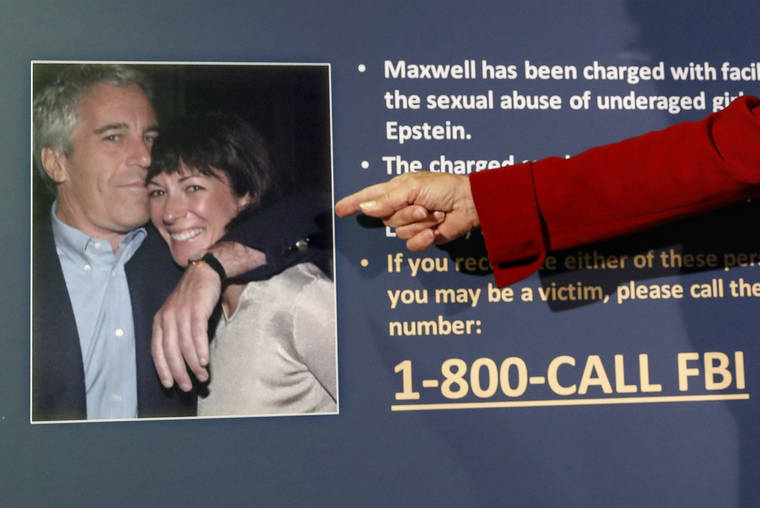NEW YORK — A judge on Monday rejected a $28.5 million proposed bail package for Jeffrey Epstein’s former girlfriend, saying her incarceration is necessary to ensure she faces trial on charges she recruited teenage girls for the late financier to sexually abuse.
U.S. District Judge Alison J. Nathan rejected the proposed bail for Ghislaine Maxwell in an order. But she did not immediately release an opinion explaining her reasoning, in order to allow defense lawyers and prosecutors to propose redactions.
Defense lawyers for Maxwell, who had lost a bail request shortly after her July arrest, recently offered the new bail package, saying Maxwell and her husband were offering all of their wealth — $22.5 million — and millions more in the assets of friends and family to secure bail. Maxwell’s husband has not been publicly identified.
Her attorneys said Maxwell would remain in a New York City residence under 24-hour guard and would submit to electronic monitoring if the judge accepted the bail package.
A message seeking comment was sent to Maxwell’s lawyers after Nathan ruled.
Prosecutors said Maxwell still retained access to significant wealth and was a high risk to flee because of her connections abroad — in addition to U.S. citizenship, she holds citizenship in the her native United Kingdom and France.
Maxwell, 59, was arrested in July at a secluded New Hampshire home and was brought to New York City.
She was charged with recruiting three teenagers as young as age 14 for Epstein to sexually abuse between 1994 and 1997. She also was accused of sometimes participating in the abuse. She pleaded not guilty to an indictment.
She has remained at a federal lockup in Brooklyn after Nathan concluded shortly after her arrest that there were no bail conditions that would ensure she would not flee.
“For substantially the same reasons as the Court determined that detention was warranted in the initial bail hearing, the Court again concludes that no conditions of release can reasonably assure the Defendant’s appearance at future proceedings,” Nathan wrote Monday.
“In reaching that conclusion, the Court considers the nature and circumstances of the offenses charged, the weight of the evidence against the Defendant, the history and characteristics of the Defendant, and the nature and seriousness of the danger that the Defendant’s release would pose,” the judge added.
Epstein killed himself in August 2019 at a Manhattan federal jail as he awaited a sex trafficking trial.





